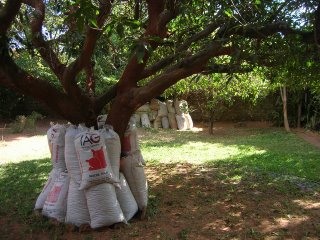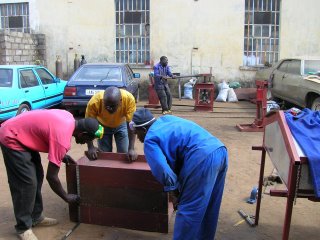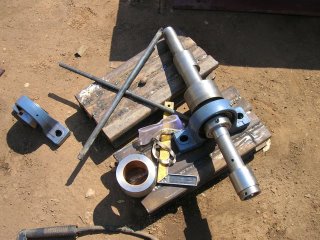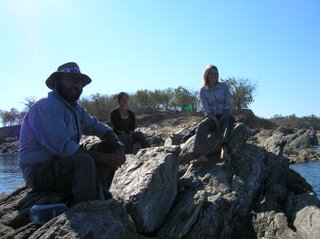Maybe it’s because I’ve spent some time in India, so I’ve got a little experience being in a developing nation. Zambia and India, in a general sense are very similar places. Perhaps it’s because I’m based in Lusaka, the big city, where mostly everyone speaks English and the Indian boy about town, really isn’t all that strange and I don’t get harassed too often with calls of Muzungu (Nyanja for White person or more generally a foreigner) or Mwenya (Nyanja for Indian, my spelling of it might be off for those who might notice). I really don’t stand out in a crowd. Whatever the reason, the fact remains is that I’m really quite comfortable being here (not 100%, I’m still quite cautious when it comes to my personal safety, but then again, most Lusakans are as well). Maybe I just adapted really well, or maybe it’s just not all that different or maybe I’m just fooling myself.
I haven’t really felt home sick at all since getting here. Perhaps it’s because I partially have the attitude which is best summed up in the lyrics of one of my favorite songs: “...Where I lay my head is home....” (Can you name the song and artist?). But that is not to say that I don’t see my apartment in London as home, or I don’t consider my Parents house my home in some way. Actually when I really look at it, there are a lot of places that feel like a home to me, that feeling really at home here isn’t all that strange. Add to it a super nice host Mom, who is almost as good as the real thing (Mom, no one could ever replace you!) and really, what do I have to miss. The food we eat, I’ll admit is different from what I usually eat, but isn’t wild and crazy. I haven’t eaten caterpillars or rats or grasshoppers. No, I usually eat chicken, beef, or sausage along with cabbage, kale, beans and the staple Nshima. Some might consider the fact they have to eat with their hands and not use utensils to be a new experience, but I’m Indian, we eat with our hands all the time, so it’s really not a big deal!
I’ve spent most of my days here in the city, so I haven’t had those typical rural African experiences of sleeping in a thatch hut, following a farmer out to his fields, or using a latrine in the dark (although the light in the washroom was broken from before I got here to just about three weeks ago). No, I’ve slept most nights in a nice house made of concrete, on a foam mattress. The bathroom, while lacking a sink, is indoors and has a fully functioning toilette and shower (albeit cold water only). I’ve visited farmers and villagers and seen their crops and villages, but I didn’t work their fields with them, or shell maize or fetch water. Do I need to physically do it to have an appreciation for it? I don’t know. In fact I’ve worn my “in the city” UES baseball cap, more than my “in the field” Tilly Hat.
I really haven’t had the typical cultural experiences that one would expect a volunteer to have in Zambia. I haven’t been to any celebrations with drumming and dancing (except the JF retreat where I was the one drumming and other ewb volunteers were the ones dancing). I haven’t been given any gifts from any village headmen (I was given a bag of oranges from a orange farmer though). What I have seen are many nightclubs and bars (from the outside) with lots of people enjoying the local brews. I’ve seen people going to the local cinemas to enjoy the latest movies (American, Nigerian and from elsewhere). I see people packing into mini-busses and walking on the streets as they make their way to and from work, or shopping. I’ve seen life in the city. Is that any less valid of an experience than seeing life in a village? I don’t think so. There’s no denying the fact that a huge percentage of population on this continent lives in the big cities of Africa like Lusaka. There is no denying the urban poverty that exists here, which is often harder to deal with than the rural poverty. My project wasn’t anything to do with urban poverty, but perhaps that’s an area that needs to have some focus, because things are just as bad, if not worse in the cities than in the villages.
In the end though, I don’t think I’m a failure. I’ve had an experience, a much different experience than a lot of EWB volunteers. I’ve worked on a project and completed what I was supposed to do and a little bit more. I’ve learned a lot, and I can only hope that what I’ve done actually makes a difference down the line. This has been my experience and I don’t regret any of it!
--
Ricky Patel





